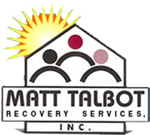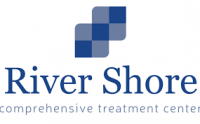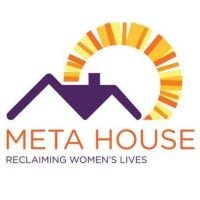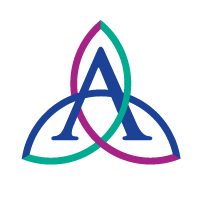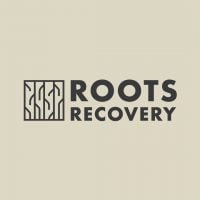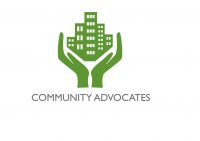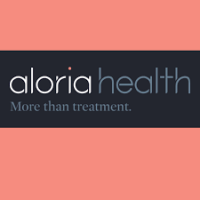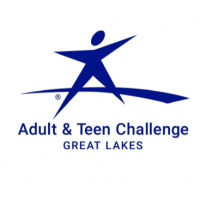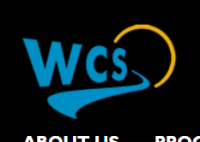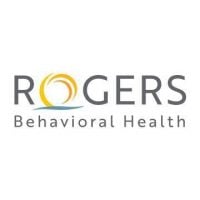Matt Talbot Recovery Center - Milwaukee
Drug Rehab Center in Milwaukee, Wisconsin
The highly-regarded Tellurian Addiction Treatment Facility in Baraboo, WI offers comprehensive treatment programs to assist those seeking sobriety from alcoholism and drug addiction with individualized care, experienced professionals, and LegitScript accredited services.
About Matt Talbot Recovery Center - Milwaukee in Wisconsin
Matt Talbot Recovery Center - Milwaukee is a multi-faceted addiction treatment center located in Milwaukee, Wisconsin that has a proven track record of helping individuals suffering from alcoholism, drug addiction, dual diagnosis, and mental health. The center offers a wide range of programs and services, such as aftercare support, drug rehab, dual-diagnosis, inpatient, and residential levels of care. In addition, Matt Talbot Recovery Center - Milwaukee accepts private health insurance and works in affiliation with Matt Talbot Recovery Center.
At Matt Talbot Recovery Center - Milwaukee, qualified professionals provide specialized services designed to help individuals struggling with addiction and substance abuse. Their comprehensive approach includes evidence-based treatments such as counseling, cognitive-behavioral therapy, peer group support, and a variety of holistic therapies. With state-of-the-art therapies, and an experienced and knowledgeable staff, the center is fully licensed and certified by the Joint Commission. The center also collaborates with numerous local and national organizations to ensure the highest quality of care for all of their clients.
Genders
Ages
Modality
Additional
Conditions and Issues Treated
A combination of treatments is often needed to treat drug abuse. Some addictions can be treated with counseling and support groups. In other cases, drug abuse can lead to a medical problem and require medical treatment. Treatment for drug addiction typically combines counseling and psychotherapy with medication and behavioral therapies.
A combination of treatments is often needed to treat drug abuse issues effectively. In the case of drug abuse, there is no easy answer or one-size-fits-all cure.
Opioid addiction has become a significant health problem in the United States. In 2015, there were 91 opioid overdose-related deaths per day, with a substantial increase in mortality rate in 2014.
When opioid addiction has reached a point where a person’s life becomes unmanageable, treatment options are available to help them get sober. Treatment that includes medical care with medications and counseling can help a user transition into sobriety.
When someone in struggles with both addiction and mental or emotional illness, this is considered a dual diagnosis. Dual diagnosis treatment can include therapy for these issues to happen simultaneously, which will allow either of them to be treated effectively.
Sometimes people who have suffered from addiction disorder also suffer from co-occurring disorders such as depression, anxiety, bipolar disorder, etc., making them “dual diagnoses.” Dual diagnoses require specialized treatment programs where drug and alcohol addiction are addressed along with psychiatric illnesses. Some rehabilitation facilities provide patients suffering from cooccurrences a program with highly integrated services and a clean environment with few distractions to help them succeed.
Levels of Care Offered
This center offers a variety of custom treatment tailored to individual recovery. Currently available are Aftercare Support, Drug Rehab, Dual-Diagnosis, Inpatient, Residential, Sober-Living / Half-Way, with additional therapies available as listed below.
Inpatient treatment for alcoholism or drug addiction is an option that provides the addict with a supportive environment in which they can stop using. After detox, an inpatient treatment center provides a structured environment for the addict to recover from their addiction and begin taking steps toward a lifetime of sobriety.
This type of treatment is appropriate for addicts that are most in need of intensive care and supervision. This includes those who were unable to quit on their own, those who need more structure than they can get in outpatient treatment, and those whose addiction has led them into legal trouble or severe health problems.
Sober living homes, also known as halfway houses, provide recovering people with a structured drug-free environment to live in that bridges inpatient rehab and the much less structured world of outpatient rehab. Sober living homes offer a person early in recovery the opportunity to practice recovery skills in a safe environment.
The atmosphere in sober living homes is less restrictive than in an inpatient facility. Members have to follow many rules, including not drinking and using drugs and paying rent and bills. There is no limit to the period of stay. As long as you stay, you should follow the rules because it’s the opportunity for individual and group sobriety.
Residential treatment programs are those that offer housing and meals in addition to substance abuse treatment. Rehab facilities that offer residential treatment allow patients to focus solely on recovery, in an environment totally separate from their lives. Some rehab centers specialize in short-term residential treatment (a few days to a week or two), while others solely provide treatment on a long-term basis (several weeks to months). Some offer both, and tailor treatment to the patient’s individual requirements.
Completing a drug or alcohol rehab program is only the first step. Then comes aftercare support. These services include sober living accommodations, career counseling, and AA/NA programs for those struggling with sobriety or who want help maintaining it after initial rehab at an addiction facility.
They can last up to a year or more depending on what’s needed most urgently after the earlier stages are completed.
Therapies & Programs
Because no single treatment is effective for all addicts, the goal of treatment and therapy should be to figure out what works best for each individual. Tolerance and withdrawal levels differ from person to person, affecting the treatment intensity required. Addiction treatment should aim to help addicts develop healthy coping mechanisms for dealing with their addiction and its underlying causes.
Couples therapy works with clients and significant others in a professional capacity to improve relationship dynamics. This can be helpful for addicts who are trying to marry the idea of recovery into their work, family, social lives – any aspect that has to do with relationships. Through counseling sessions, addicts will have an opportunity to talk about their addiction with professional partners.
Family therapy is beneficial for people who are in addiction treatment services because it offers addicts the opportunity to work with their family members to better understand what led them to make choices that contributed to their addiction.
This type of therapy helps family members reach a deeper understanding of how they can best support their loved one during recovery. It also helps the addict better understand their own motivations and triggers that led them to turn to substance abuse.
Family therapy can help addicts in the following ways:
- Assists family members in processing difficult feelings so they don’t blame or resent recovering addicts
- Assists family members in understanding how addiction has impacted the addict and everyone who is involved with them
- Allows the addict to take responsibility for their actions, while encouraging improved communication skills
- Helps family members understand how to best support an individual in recovery so addicts don’t relapse again.
Group therapy can help build a stronger support system and give addicts in Milwaukee, WI insight into their addiction that they gain through shared conversations. Group therapy occurs in a controlled group environment, exclusive of one on one meetings. This makes it safer for patients to feel comfortable sharing the struggles they’re going through and gaining perspective.
Trauma therapy is beneficial for people who are recovering from drug addiction because it helps them heal from past traumas that may have caused them to turn to harmful substances or led them to experience negative emotions that contributed to their destructive behaviors.
This type of treatment works by processing difficult experiences so individuals can learn how to process these events without having to turn to substances for coping.
Trauma therapy can help addicts in the following ways:
- Helps individuals understand their experiences and emotional responses to difficult events, including why they turned to drugs or alcohol
- Provides them with comfort and support while working through difficult emotions related to these traumatic experiences
- Offers an opportunity for addicts to have a voice and be heard, which can improve their self-esteem
- Can help them develop coping skills so they can better respond to triggers instead of turning to substance abuse.
Cognitive-behavioral therapy is a technique that is used to help people with addiction. Specifically, it is a way of identifying thoughts and behaviors that cause the addiction. It is typically used in an individual counseling session.
The content explains cognitive behavioral therapy and how it works to address some behaviors that may be leading to unintended consequences in their life, as well as its benefits for those seeking sobriety.
It works by helping people to talk through their issues and addressing the thoughts that cause said behaviors. It is an excellent way of learning about oneself and one’s perception of the world.
Addicts seeking sobriety can find quick results with Rational Emotional Behavior Therapy. This type of counseling offered by Matt Talbot Recovery Center - Milwaukee replaces negative and self-limiting thoughts with positive and productive behaviors. This allows addicts to move forward without having to deal with ongoing treatment throughout their lives. Individuals who are seeking sobriety can find quick results with Rational Emotional Behavior Therapy.
Life Skills Services assist addicts in their recovery by teaching them healthy coping mechanisms that will aid them in becoming sober, focussing on helping people enter into, and maintaining long-term sobriety. Drug Treatment Centers provide Life Skills Services at varying levels of intensity, specific to the needs and requirements of each patient.
The benefits of Life Skills Services offered at Matt Talbot Recovery Center - Milwaukee:
- Restores hope and empowerment — Helps addicts believe that recovery is possible and instills a new confidence in their ability to achieve a positive, drug-free future
- Enhances family involvement — Encourages families to get involved in the recovery process and supports their understanding and encouragement of healthy behavior.
- Increases patient’s compliance — Helps patients take responsibility for and ownership of their recovery and encourages continued progress
- Reduces relapse rates — Encourages long-term abstinence and emphasizes the importance of establishing sober support systems.
The 12-step program is a common method used to treat addiction. It is successful for many people and includes acknowledging the problem, making changes, and honesty. The program is available in most cities in the United States and helps those addicted to drugs or alcohol achieve sobriety. In this program, peers help each other achieve the goal of abstinence.
The 12 steps dictate that individuals accept that they are addicts and understand the consequences of their addiction. They then work towards recovery and make amends to others they have hurt. The process of cognitive restructuring helps individuals change their negative thoughts into positive ones. The 12-step program provides the benefit of building a support network, which is essential for recovery.
Payment Options Accepted
For specific insurance or payment methods please contact us.
Is your insurance accepted?
Ask an expert, call (888) 674-0062
Matt Talbot Recovery Center Associated Centers
Discover treatment facilities under the same provider.
Learn More About Matt Talbot Recovery Center Centers
Additional Details
Specifics, location, and helpful extra information.
Milwaukee, Wisconsin 53212 Phone Number(414) 342-5474 Meta DetailsUpdated November 25, 2023
Staff Verified
Matt Talbot Recovery Center - Milwaukee Patient Reviews
There are no reviews yet. Be the first one to write one.
Milwaukee, Wisconsin Addiction Information
Wisconsin has some of the highest rates in the United States for both adolescent and adult substance abuse. Since 2009, the state has been experiencing the same escalating rates of drug abuse and addiction as the rest of the country. The major concerns are the misuse of prescription painkillers and the escalating number of deaths due to alcohol-related liver disease.
Drug abuse is a growing problem in Milwaukee, Wisconsin, and the statistics are alarming. Treatment admissions for opiate addiction have increased by 400% over the past 10 years. Drug overdoses are now the leading cause of death for people aged 25-44. There are various drug treatment options available for someone looking to get sober in Milwaukee, Wisconsin. Some of the most common treatments include inpatient rehab, outpatient rehab, and therapy.
Treatment in Nearby Cities
- Viroqua, WI (153.0 mi.)
- Middleton, WI (80.2 mi.)
- Port Washington, WI (20.8 mi.)
- Fitchburg, WI (76.4 mi.)
- Kenosha, WI (35.2 mi.)
Centers near Matt Talbot Recovery Center - Milwaukee
The facility name, logo and brand are the property and registered trademarks of Matt Talbot Recovery Center - Milwaukee, and are being used for identification and informational purposes only. Use of these names, logos and brands shall not imply endorsement. RehabNow.org is not affiliated with or sponsored by Matt Talbot Recovery Center - Milwaukee.
